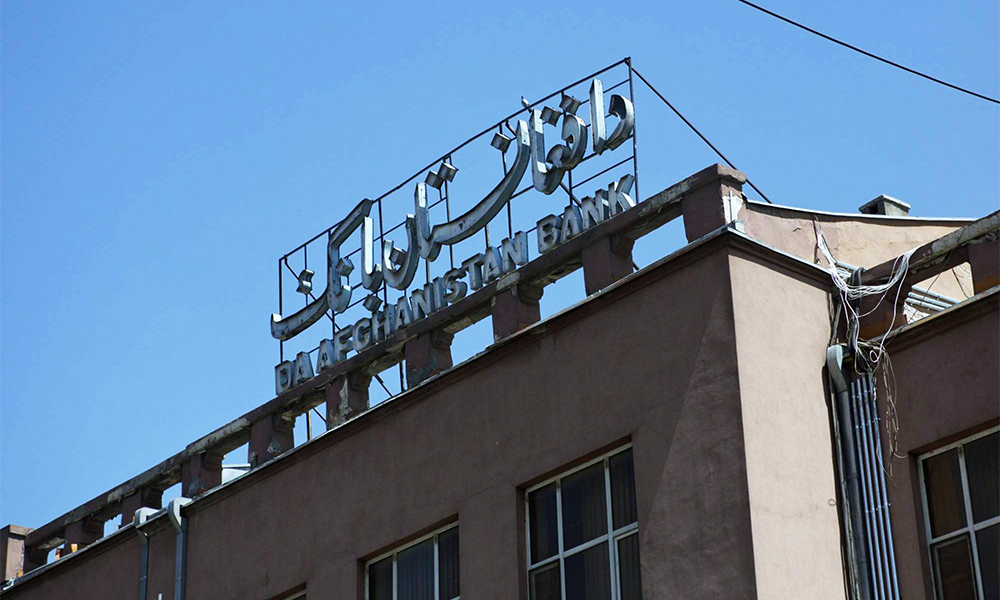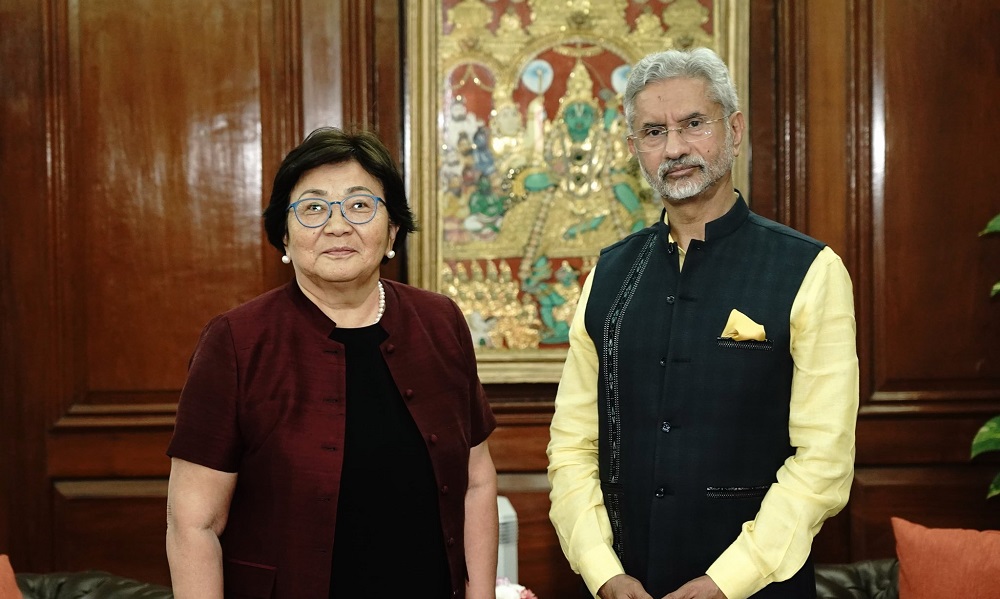Latest News
Afghan central bank drained dollar stockpile before Kabul fell

The Afghan central bank ran down most of its U.S. dollar cash reserves in the weeks before the Taliban took control of the country, according to an assessment prepared for Afghanistan’s international donors, exacerbating the current economic crisis.
The confidential, two-page brief, written early this month by senior international economic officials for institutions including the World Bank and International Monetary Fund, said the country’s severe cash shortage began before the Islamic Emirate of Afghanistan (IEA) took control of Kabul, Reuters reported.
It criticised how the central bank’s former leadership handled the crisis in the months before the IEA’s conquest, including decisions to auction unusually large amounts of U.S. dollars and move money from Kabul to provincial branches.
“FX (foreign exchange) reserves in CB’s (central bank) vaults in Kabul have depleted, the CB cannot meet … cash requests,” the report, seen by Reuters, said.
“The biggest source of the problem is the mismanagement at the central bank prior to the Taliban (IEA) takeover,” it added.
Shah Mehrabi, chairman of the central bank’s audit committee who helped oversee the bank before the IEA took over and is still in his post, defended the central bank’s actions, saying it was trying to prevent a run on the local Afghani currency.
The extent of the cash shortage can be seen on the streets of Afghan cities, where people have been queuing for hours to withdraw dollar savings amid strict limits on how much they can take out.
Even before the shock of the Western-backed government’s collapse, the economy was struggling, but the return of the IEA and abrupt end of billions of dollars in foreign aid has left it in deep crisis.
Prices for staples like flour have spiralled while work has dried up, leaving millions facing hunger as winter approaches.
Aid dries up
Under the previous government, the central bank relied on cash shipments of $249 million, delivered roughly every three months in boxes of bound $100 notes and stored in the vaults of the central bank and presidential palace, according to three people with direct knowledge of the matter.
That money has dried up as foreign powers shy away from dealing directly with the IEA.
The central bank, which plays a key role in Afghanistan because it distributes aid from countries like the United States, said on Wednesday it had finalised a plan to meet the country’s foreign currency needs. It gave no details.
The hard currency crunch is making it difficult for the IEA to meet basic needs, including paying for power or dispersing salaries to government employees, many of whom have not been paid in months.
Afghanistan’s roughly $9 billion of offshore reserves were frozen as soon as the IEA captured Kabul, leaving the central bank with just the cash in its vaults.
According to the report, the central bank auctioned off $1.5 billion between June 1 and August 15 to local foreign exchange dealers, which it said was “strikingly high”.
“By August 15, the Central Bank had an outstanding liability of $700 million and 50 billion Afghanis ($569 million) towards the commercial banks,” it said, adding that this had been a major factor in emptying its coffers.
Afghan central bank official Mehrabi said, however, that although almost $1.5 billion of auctions had been announced, the actual amount sold was $714 million.
He said the central bank had “continued its foreign exchange auction to reduce the depreciation and inflation.”
Money missing?
The report also questioned a decision by the central bank to shift some of its reserves to provincial branches, putting it at risk as IEA forces made advances across the country from late 2020 in the runup to their victory.
It said around $202 million was kept in these branches at the end of 2020, compared with $12.9 million in 2019, and that the cash was not moved as provinces started to fall to the IEA.
“Some money is reportedly lost (stolen) from ‘some’ of the provincial branches,” the report said, without specifying how much.
Mehrabi said the central bank was investigating money “stolen” from three of its branches, although not by the IEA. He gave no further details.
Former central bank governor Ajmal Ahmady, who left the country the day after Kabul fell, did not respond to emails and other messages requesting comment on his and the bank’s actions in the months before the IEA returned to power.
Ahmady has said on Twitter in recent weeks that he did his best to manage the situation, and blamed any cash shortfall on the freezing of central bank assets abroad.
In his statements, he also said the central bank had managed the economy well prior to the fall of Kabul and that he felt bad about leaving staff behind but feared for his safety. He has said no money was stolen from any reserve account.
Latest News
IEA urges World Bank to resume work on 7,000 incomplete projects

Officials at the Ministry of Rural Rehabilitation and Development (MRRD) say 7,000 incomplete projects of the World Bank are at risk of destruction in Afghanistan. They call on the World Bank to resume the work of these projects.
According to them, discussions have been held with the World Bank about these projects, but there has been no result yet.
“7,000 incomplete projects are being destroyed, and if the work is not started, these projects will be destroyed. We ask the World Bank to resume the work of these projects as soon as possible,” said Noorul Hadi Adel, the spokesperson of MRRD.
Meanwhile, members of the private sector also ask international institutions to resume their work in Afghanistan.
According to the officials of this sector, with the start of these projects, job opportunities will be provided for thousands of people in the country.
“These projects create employment for our people and the country will grow a lot,” said Mirwais Hajizadeh, a member of the private sector.
However, economic experts stated if the work of these projects does not start soon, they will be destroyed and the investments made in them will be wasted.
Latest News
Ten people killed by floods in Helmand

Ten people have been killed and six others injured by floods in Helmand province in the past week, local officials said on Friday.
According to officials, seven of those were members of the same family, and they were killed in Kajaki district last night.
“Most of the people moved from vulnerable areas to high lands and mountains, and thanks Allah the number of casualties is low,” Sher Mohammad Vahdat, the head of information of the Directorate of Information and Culture in Helmand, said adding rescue teams and security forces have been dispatched to help people.
It is said that the telecommunication system has also been disrupted due to the effect of floods in Kajaki district. Floods have also destroyed thousands of acres of agricultural land.
Latest News
UN envoy meets Indian foreign minister to discuss Afghanistan

Roza Otunbayeva, the UN Secretary General’s Special Representative for Afghanistan, met with the Indian Foreign Minister Subrahmanyam Jaishankar in New Delhi and discussed issues related to Afghanistan, it was announced on Thursday.
During the meeting, Otunbayeva thanked India for “its critical humanitarian support and longstanding friendship for the Afghan people” and discussed the importance of regional and international cooperation to address prevailing challenges in Afghanistan, UNAMA said on X.
Jaishankar also said on X that the sides exchanged views on the current situation in Afghanistan.
“Underlined that India has provided wheat, medicines, pesticides and school supplies. Appreciate the role of UN agencies as partners in these endeavors,” he said.
-

 Sport4 days ago
Sport4 days agoACL fever grows as fixtures finalized
-

 World5 days ago
World5 days agoUS will not take part in any Israeli retaliatory action against Iran
-

 Latest News4 days ago
Latest News4 days agoOver 50 people dead in traffic accidents over Eid
-

 Latest News4 days ago
Latest News4 days agoUS identifies Kabul airport suicide bomber
-

 Business4 days ago
Business4 days agoAfghanistan-Kazakhstan chamber of commerce opens in Herat
-

 Latest News5 days ago
Latest News5 days agoGood rains enable DABS to increase power production in Kabul
-

 World4 days ago
World4 days agoIsraeli military vows response to Iran attack as calls for restraint mount
-

 Latest News3 days ago
Latest News3 days agoPakistani police give Afghans in Balochistan one day to leave
























